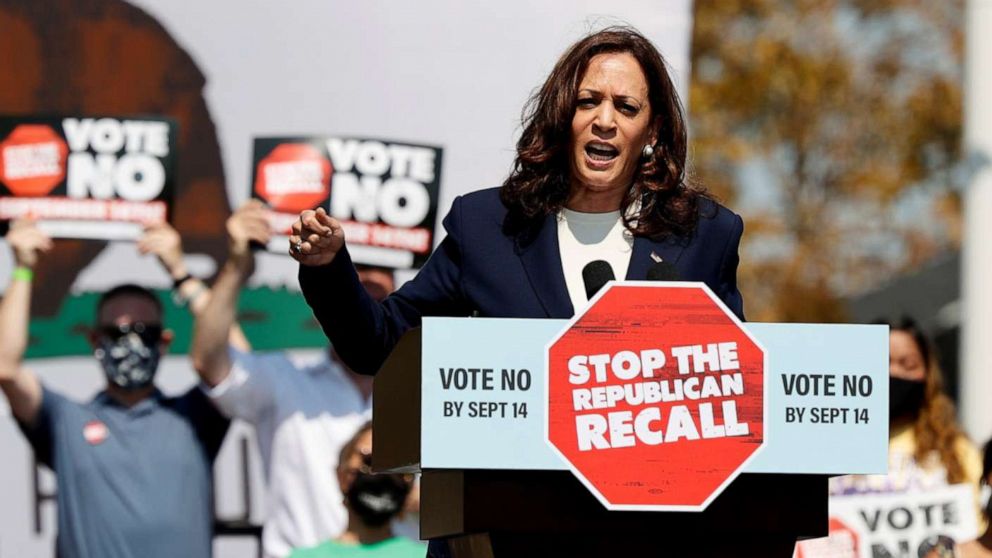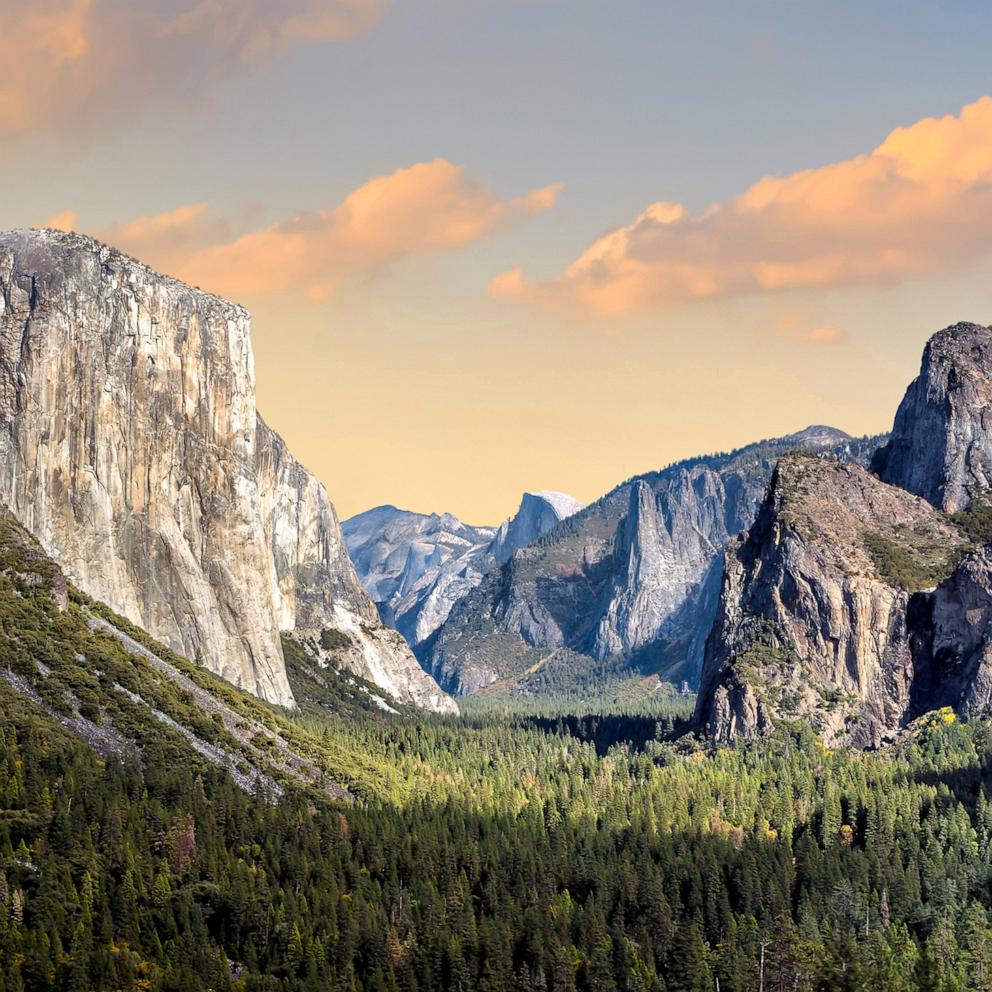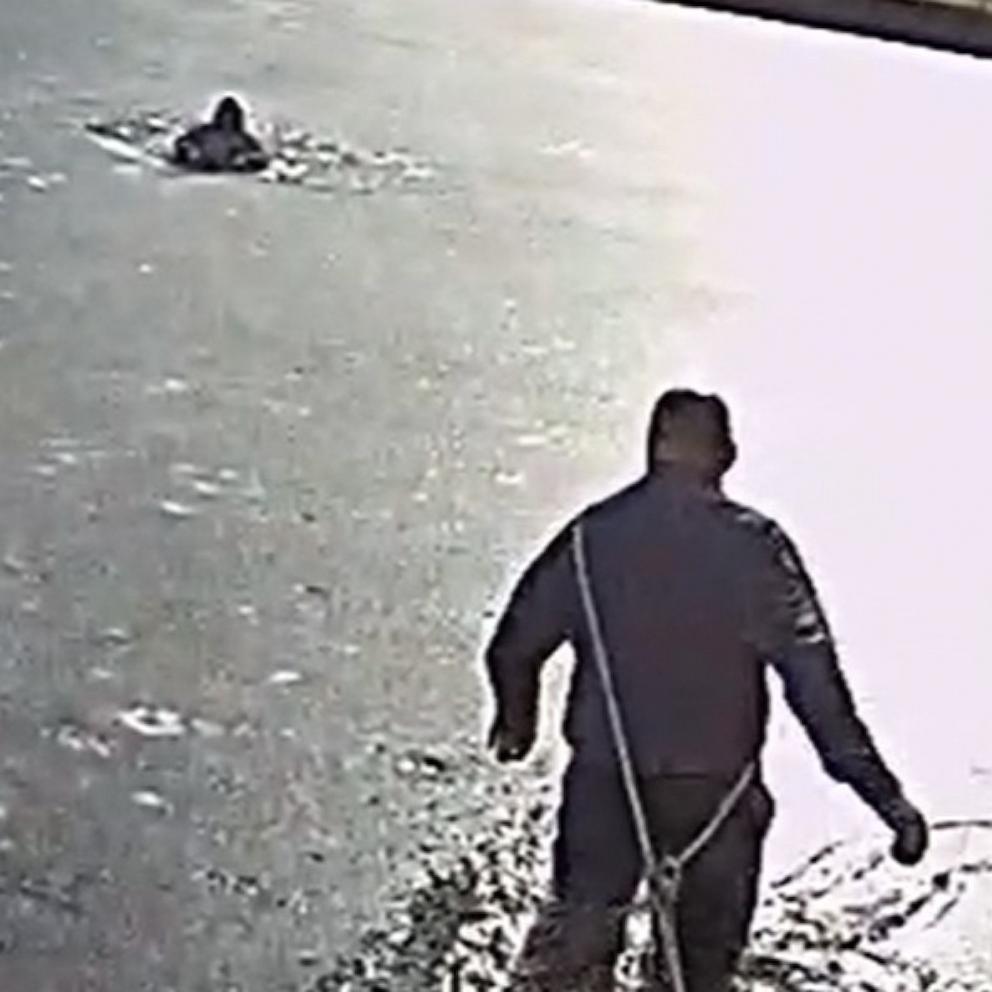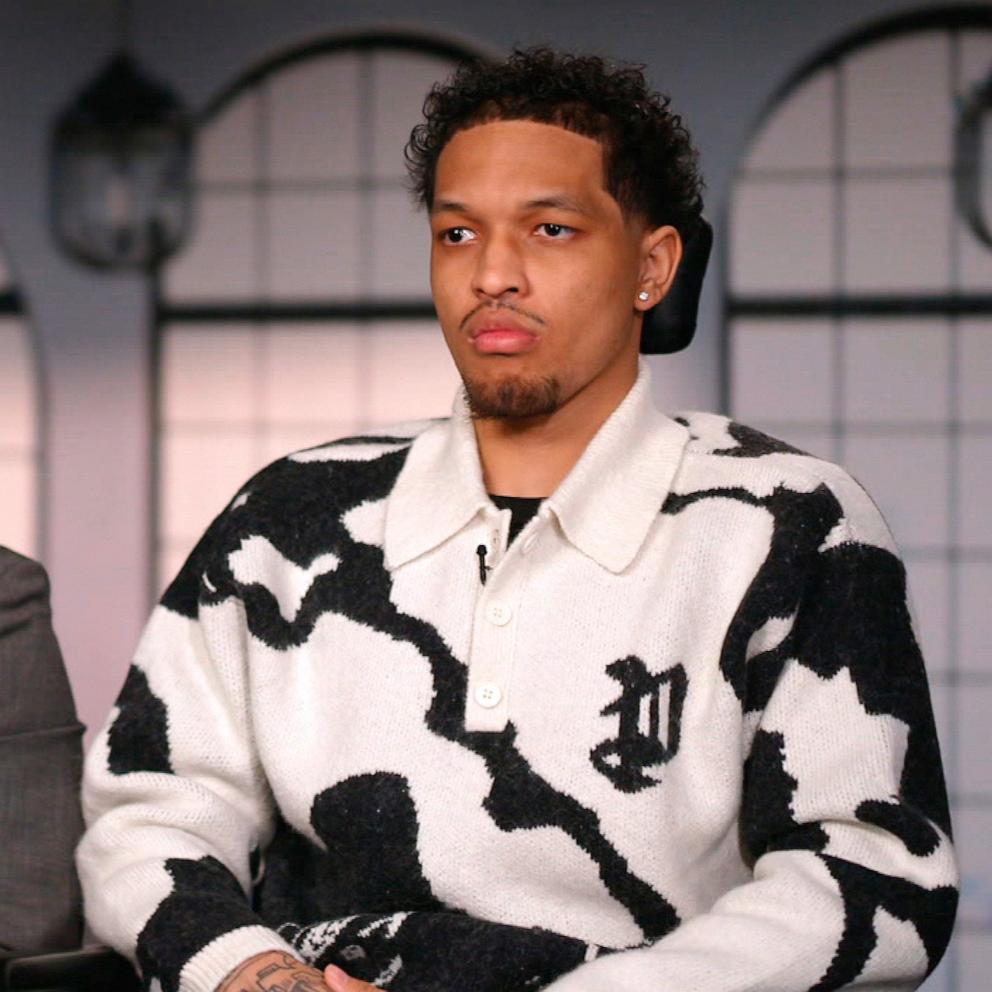Vice President Kamala Harris rallies with Gov. Gavin Newsom ahead of Tuesday's recall election
With six days to go until ballots are due, Vice President Kamala Harris returned to the Bay Area Wednesday afternoon to stump for Democratic Gov. Gavin Newsom ahead of Tuesday's recall election.
Newsom is facing a two-part question on next week's recall ballot: whether voters would like to recall him and who they would like to replace him with.
Harris, who appeared with Newsom before President Joe Biden is set to do so next week, told the crowd at a rally with union workers that helping get out the vote for the governor was a priority.
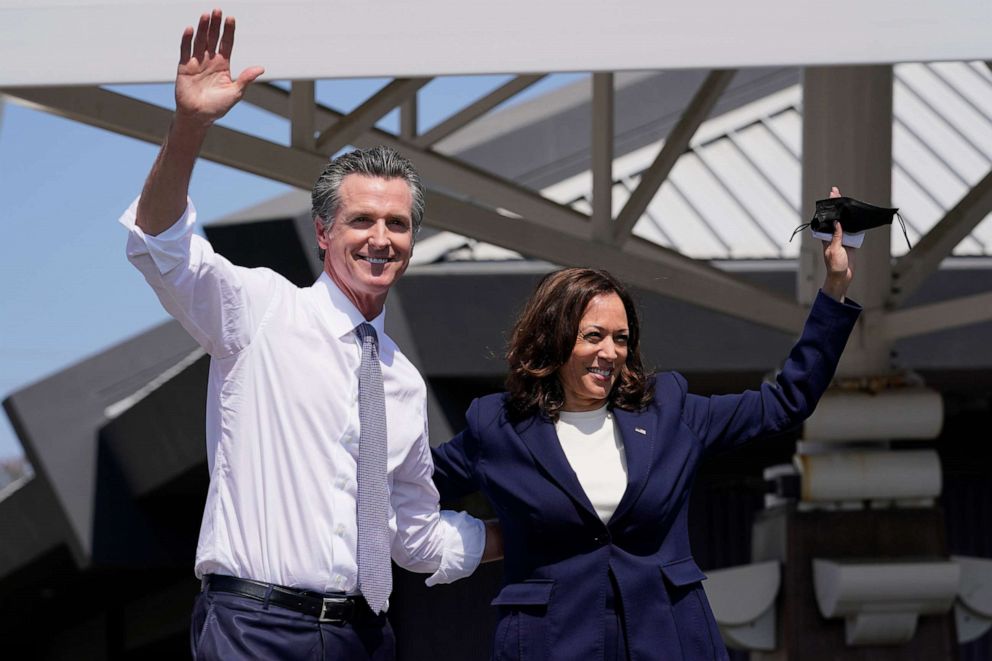
"I came home for one purpose, it was really important for me to come home to stand and speak in support of my dear friend," she said.
"We want our leaders in California to have a vision of what is possible, to see the opportunity of a moment to inspire and uplift all people. That's what the people of California have always wanted. And that's why the Republicans' recall will fail," Harris continued.
Harris is the latest big-name Democrat to stump for Newsom. Shortly before the rally his campaign began airing an ad featuring former President Barack Obama, who encouraged Californians to vote against the recall. Sens. Elizabeth Warren, D-Mass., and Bernie Sanders, I-Vt., have also appeared on the air in support of Newsom, and Sen. Amy Klobuchar, D-Minn., rallied with him to get out the vote earlier this month.
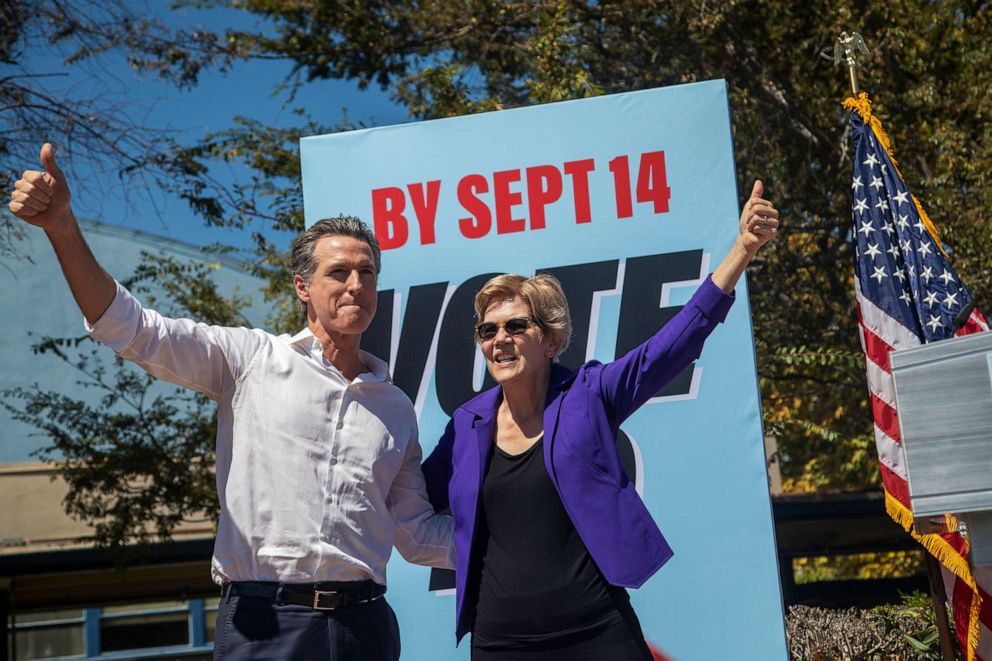
Newsom has come under fire from critics and recall hopefuls for his response to the coronavirus pandemic, including recent vaccine and mask mandates in some public settings across the state.
Harris lauded his decision making when it came to the pandemic.
"Gavin stepped up to the moment. Over 22 million Californians have been vaccinated because of the programs that he led and put in place, because he was not afraid. He didn't say, "This problem is too big for me.' He didn't say 'My state is too big for me.' No, and he led with courage," she said.
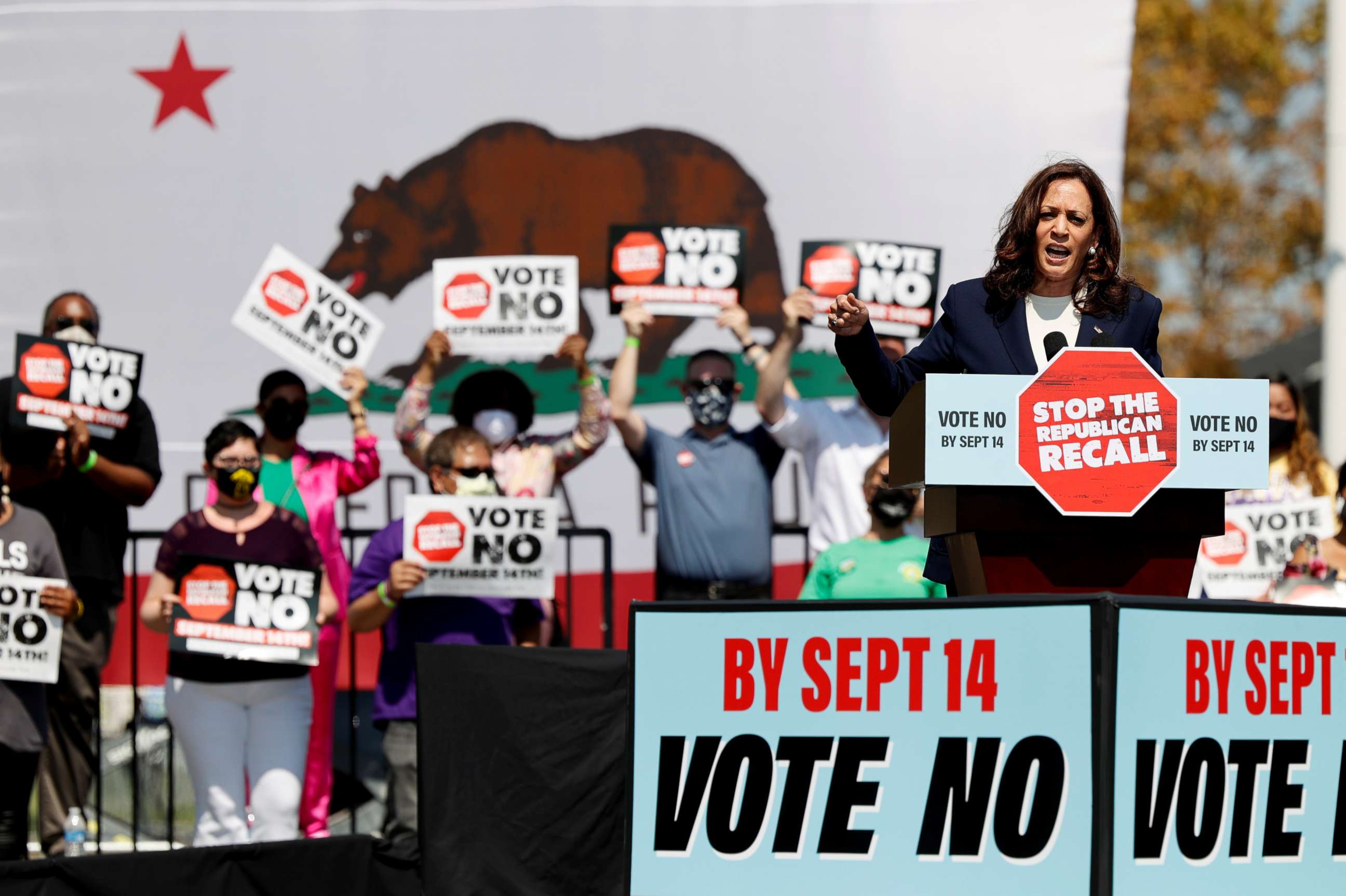
Newsom and other Democrats have attempted to nationalize the race by highlighting the thin margins in the Senate -- and what could happen if a Republican governor is able to make an appointment should Sen. Diane Feinstein's seat become open.
"What's happening in Texas, what's happening in Georgia, what's happening around our country with these policies that are about attacking women's rights, reproductive rights, voting rights, workers rights, they think if they can win in California they can do this anywhere, but we're gonna show them they can't," Harris said Wednesday.
So far, according to data collected by Political Data Inc., a firm that works with campaigns in California, 29% of California's 22 million active voters, who all received ballots in the mail, have returned them. Based solely on partisan breakdown of ballot returns, Democrats and Republicans are returning ballots at similar paces, 33% and 30%, respectively, although the number of Democratic voters in the state is nearly double that of Republicans.
Newsom, during his remarks introducing Harris, painted Larry Elder -- the controversial recall candidate who said he believes the minimum wage should be $0 and that women are not as smart as men -- as the type of governor Californians should expect if the recall passes and pointed to the risks he believes the state would be in if Elder were to be his successor.
"He said the first thing he'll do after he gets sworn in -- he said the first thing he'll do before his first cup of tea -- is he will sign an executive order, eliminating mask wearing for our kids in public schools and eliminating vaccine verification for health care workers. Consider the consequences of that," Newsom said.
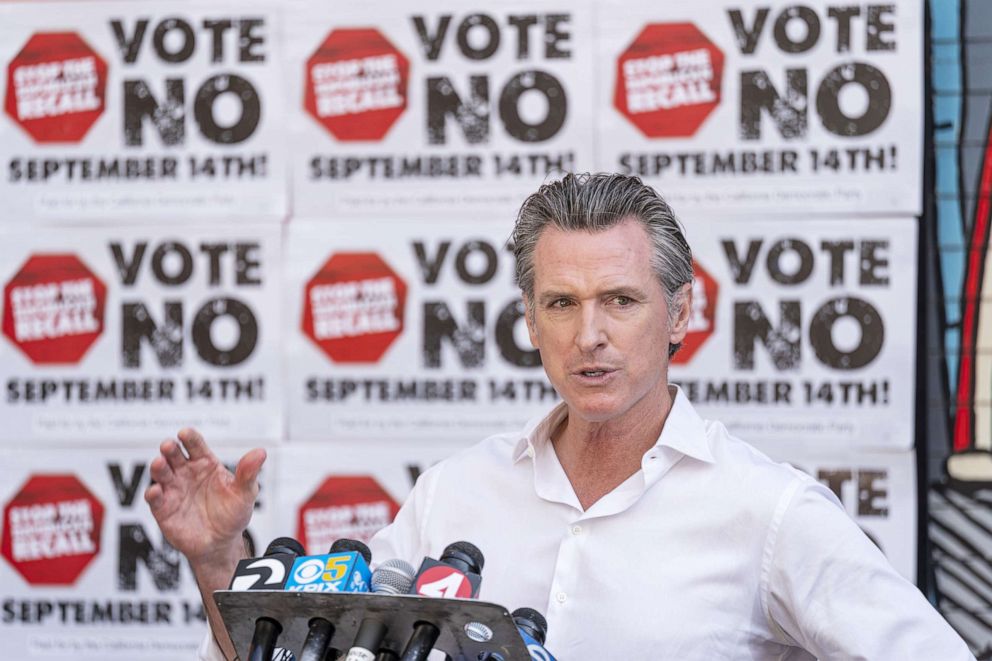
Although many voters said they are still undecided on who they'd choose as a replacement, Elder, a nationally syndicated conservative radio host, leads most public polling of the recall field.
Newsom also referenced the balance of power in Washington if Elder had been governor last year and appointed a Republican to fill Harris' seat.
"Would there have been that last stimulus? Would there be Majority Leader Chuck Schumer? Think of the consequences, California. That's what's at stake ... you have the opportunity to determine the fate and future of this state. And I would argue impact the fate and future of the United States of America. This is a consequential election," he said.
Every voter in California was mailed a ballot for this election, so there is less pressure on Newsom when it comes to cultivating high turnout in order to defeat the recall. The latest poll from the Public Policy Institute of California released last week showed 58% of Californians opposing the recall.
In that poll, 49% of respondents said that they either will not vote on the second question to choose a replacement candidate or they do not yet know who they'd like to pick.
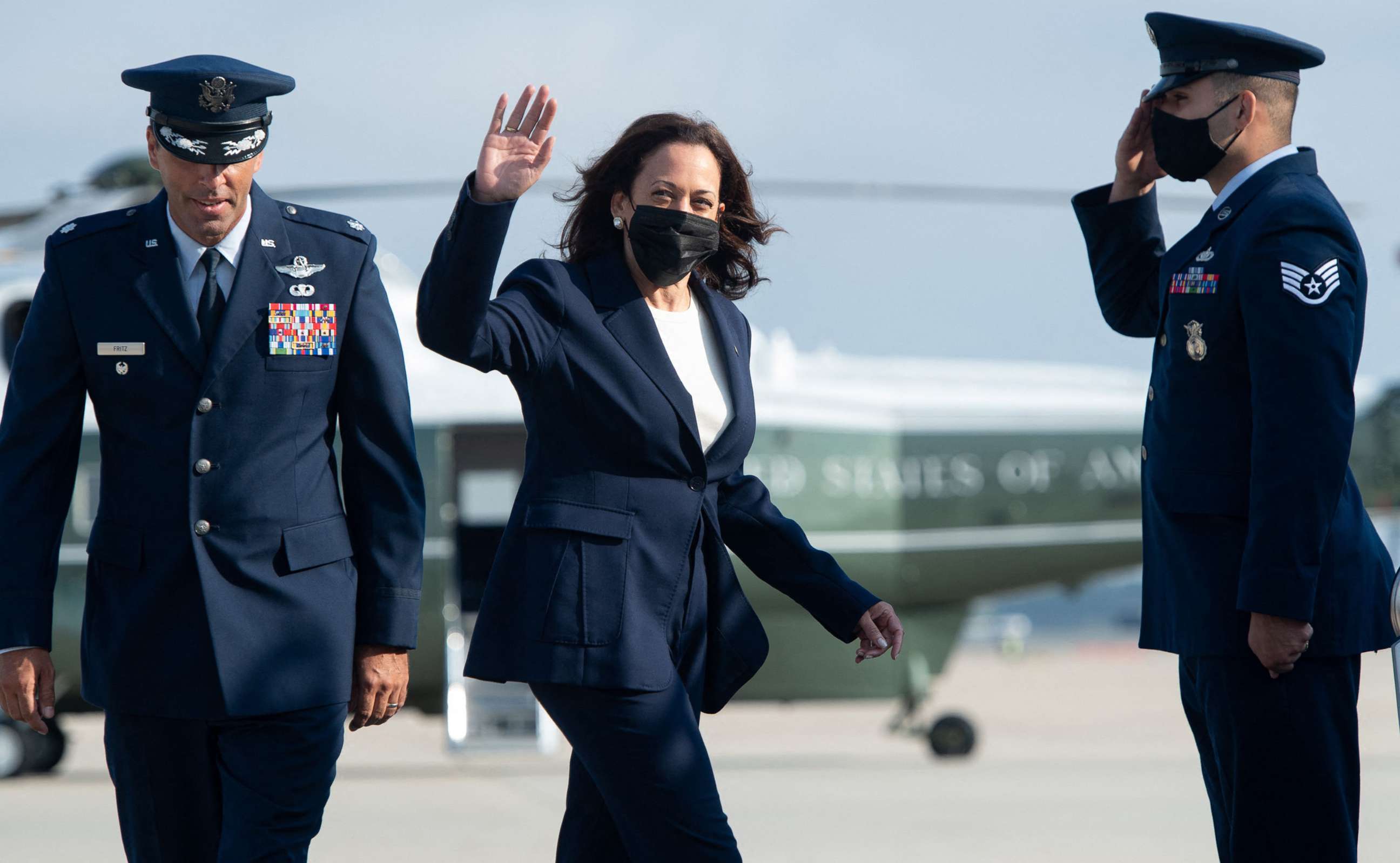
Newsom also nodded to former President Donald Trump's grip on the Republican Party and the lies about a stolen election that have turned into a platform for many in the GOP.
"What a remarkable moment it is in American history. But we have a chance, and an opportunity, to make history of our own here in the state of California. By rejecting that -- well, that cynicism, rejecting that fear, by rejecting that kind of dismissiveness. California, we are better than that, we have the opportunity by voting no on this recall. We're better than that," he said.
